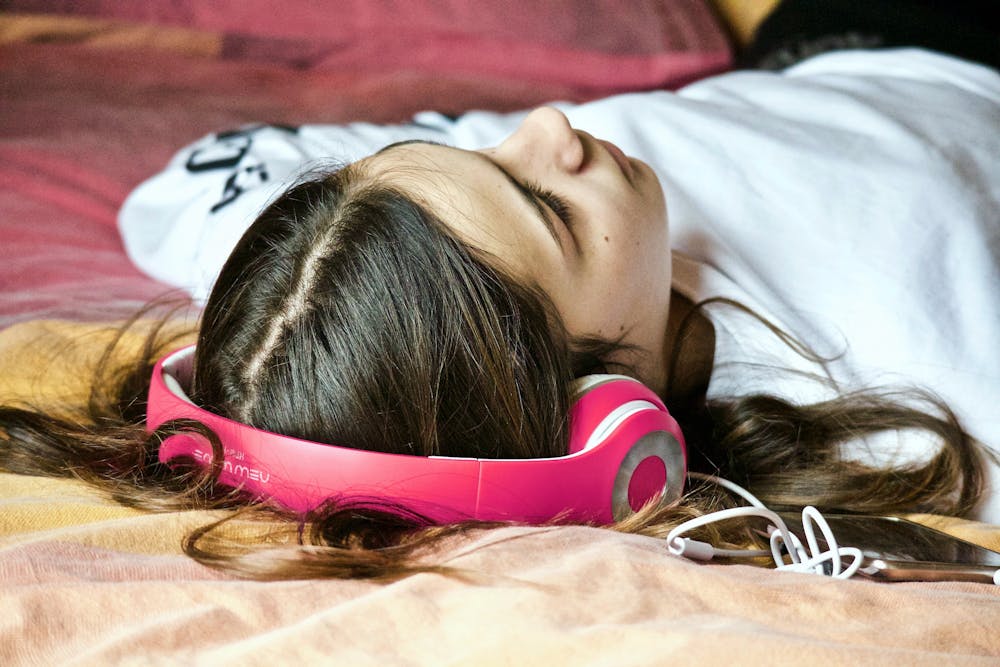By Tasnim Oyshi
Correspondent
Fanning over boy bands. Watching “Twilight.” Reading young adult romance novels. These are the favorite pastimes of a stereotypical teenage girl. They are also a few of the most ridiculed activities in the world. With the only commonality of such actions being that they are shared by girls between the ages of thirteen and nineteen, it only makes sense to attribute the cause of mockery to the hatred against teenage girls.
The animosity against these young girls is not a recent phenomenon. For centuries, teen girls have suffered in their roles as the butt of society’s unfunniest jokes. The music they like, the films they watch and the books they read are all constantly referred to as not “real” art and “trashy.” Even The Beatles, who are considered music legends by today’s standards, were once seen as a horrible band simply because their first fans were the teen girls of the 1960s, according to Vox. The same was true for more recent boy bands like One Direction and BTS.
The fandom culture of teenage girls, whether it’s centered on popular boy groups or suggestive vampire and werewolf novels, remains one of the main criticisms of this group. They are considered “hysterical” or “obsessive” with their love for such mainstream forms of entertainment.
It is true that fandom culture can go too far. Oftentimes, celebrities can end up having stalkers or people who harass and even doxx them through social media. In Nov. 2023, rapper Nicki Minaj had to tell her fans, also known as the Barbz, to stop threatening people on her behalf, according to an article in Rolling Stone.
However, it seems that people only find fault with fandom culture when the “culprit” is teenage girls. The traditionally masculine sports fandoms are never as often discussed when it comes to their toxicity and violence.
According to a 2023 survey by Sportsbook Review, 39.2% of NFL fans have been witnesses to crimes like physical violence, public intoxication and disorderly conduct around the NFL stadium. While teen girls are often all stereotyped and treated as crazy, out-of-control fangirls for their interests, sports fans rarely get an equally bad rep.
Not only is the socially acceptable resentment of young girls harmful to their self-esteem, but it also serves as an unfortunate breeding ground for internalized misogyny. Over the past couple of decades, there has been a surge in the types of women who are hated and belittled. The “Karen,” the “VSCO” girl, the “pick me” girl and the one who’s “not like other girls.” While most people recognize these names, there are frustratingly few, if any, male equivalents that they can name.
The memes of these undesirable women set up standards for young girls on what not to be. These terms are used as insults by many, who can play fast and loose with them and refer to a woman as one of these insults when they don’t like the way she acts. Teenage girls see the hatred for these types of women and learn to hate them too, trying their best to never emulate a semblance of their personalities. In turn, this causes serious repercussions to the mental health of these girls.
About 20% of teenagers experience depression by the time they reach age seventeen, according to a 2021 report by the National Survey on Drug Use and Health. Of the teenagers residing in the U.S., girls were found to be twice as likely than boys to face clinical depression. Teenage years are a hormonal and insecure time period of self-loathing for many teenagers, especially girls who have to deal with severe bodily changes like menstruation, as well as the mental strain that comes with them. Surely, ceaselessly being taunted and even disliked for having hobbies does nothing to alleviate their self-hatred and depression.
Much of what teenage girls do is not harmful to others nor should it be a cause for scorn. Young girls are at a point in their lives when they are mentally vulnerable. Expressing disdain for them based solely on their interests is not only damaging to them, but also to the teen girls who will come after them and have to face the same cycle. This cycle has been going on for far longer than it should and it is time the world gives teenage girls a break.







